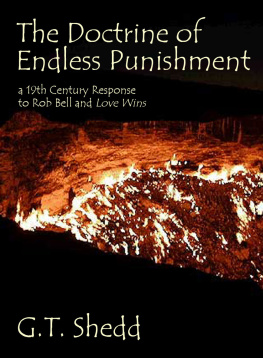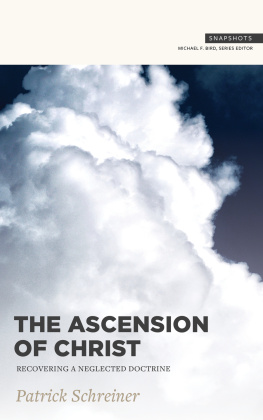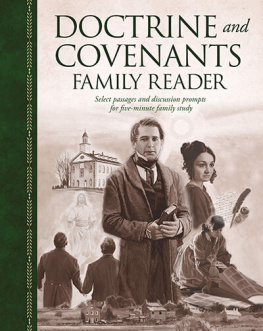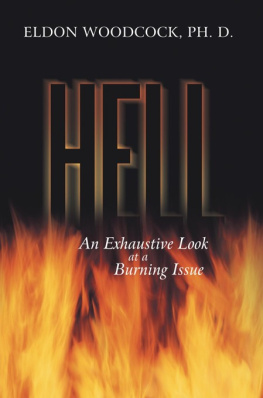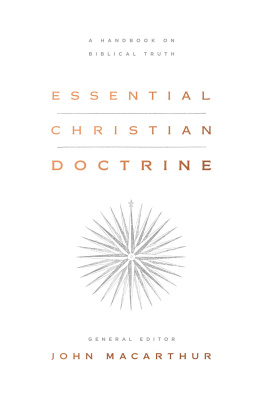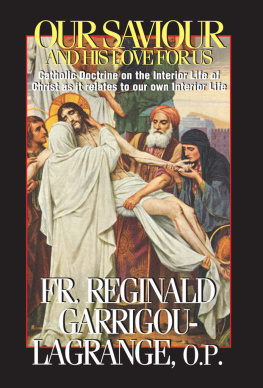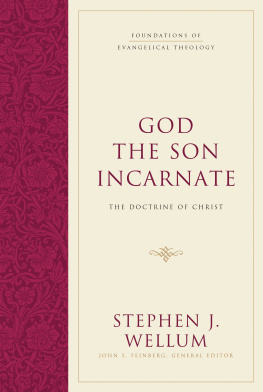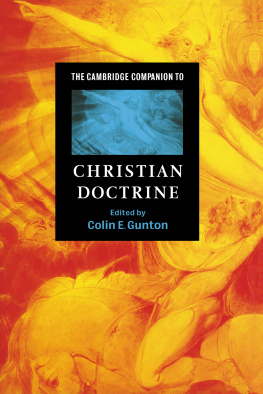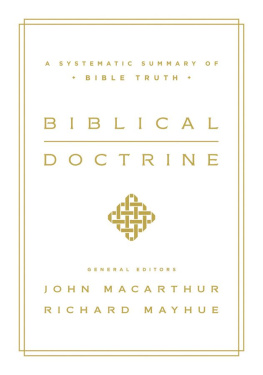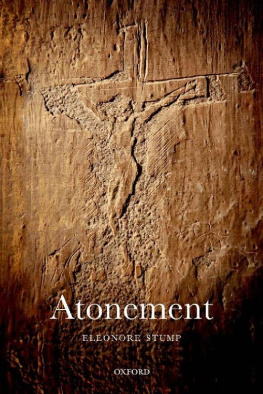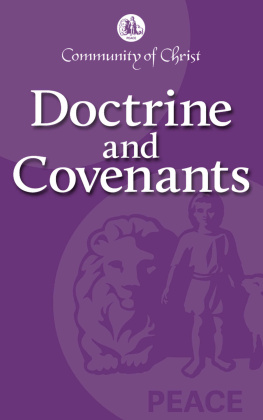TheDoctrine of Endless Punishment
By:
WilliamG.T. Shed
Contents
Preface
At therequest of the editor of the North American Review, the author of this bookprepared an argument in defence of the doctrine of Endless Punishment, whichwas published in the number of that periodical for February, 1885. It wasagreed that the writer should have the right to republish it at a future time.Only the rational argument was presented in the article. The author nowreproduces it, adding the Biblical argument, and a brief historical sketch.
Every doctrine has its day to beattacked, and defended. Just now, that of Eternal Retribution is strenuouslycombated, not only outside of the church, but to some extent within it.Whoever preaches it is said, by some, not to preach to the timesas if thesin of this time were privileged, and stood in a different relation to the lawand judgment of God, from that of other times.
The argument from Scripture heregiven turns principally upon the meaning of Sheol and Hades, and of theadjective . Indetermining the signification of the former, the author has relied mainly uponthe logic and aim of the inspired writers. The reasoning of a writer is a clueto his technical terma. When his object unquestionably is to alarm and deter,it is rational to infer that his phraseology has a meaning in his own mindthat is adapted to this. When, therefore, the wicked are threatened with aSheol and a Hades, it must be an erroneous interpretation that empties them ofall the force of a threat. And such is the interpretation which denotes thateither term denotes the place of retributive suffering.
It is freely acknowledged, thatif the meaning of Sheol, or Hades, is to be derived from the usage of amajority of the fathers, and the schoolmen generally, it has no special andexclusive reference to the wicked, and is not of the nature of an evil for themalone. If Sheol, or Hades, is nothing but an underworld for all souls, then itis morally non-descriptive, and whatever of danger there may be in anunderworld pertains alike to the righteous and the wicked. But if the Scripturesthemselves, and their interpretation by a portion of the fathers, and thereformers generally, are consulted, it is claimed that the position taken inthis book, that Sheol, or Hades, is the equivalent of the modern Hell, willhold. It is with eschatology as it is with ecclesiastical polity. If theauthority of the Post-Nicene fathers and the schoolmen is conceded to be thechief determinant of the questions at issue, the prelatist will carry the day.But if the Bible and the interpretation of the Apostolic and Reformationchurches are appealed to, he will lose it. The simplicity of the faith was departedfrom, when under Hellenizing influences in the church the Heathen Orcus wassubstituted for the Biblical Hades. A superstitious and materializingeschatology came in along with the corruption of the Christian system, and heldsway for a thousand years, until the return to the Scriptures themselves bythe leaders of the Reformation, restored the older and purer type of doctrine.
Although the author, in theprosecution of the argument, does not turn aside to enlarge upon the awfulnessof the doctrine of Endless Punishment, it must not be supposed that he isunimpressed by it. It is a doctrine which throws in its solemn shadows uponeven the most careless human life. No man is utterly indifferent to thepossible issues of the great Hereafter. The fall and eternal ruin of animmortal spirit is the most dreadful event conceivable. That some of God'srational and self-determined creatures will forever be in deadly enmity to him,cannot be thought of without sorrow and awe. But from the nature of finite freewill, it is a possibility; and it is revealed to us as a fact, as clearly asthe facts of incarnation and redemption. Neither the Christian ministry, northe Christian church, are responsible for the doctrine of Eternal Perdition. Itis given in charge to the ministry, and to the church, by the Lord Christhimself, in his last commission, as a truth to be preached to every creature.If they are false to this trust, his message to the church of Ephesus is forthem: Remember from whence thou art fallen, and repent, and do the firstworks; or else I will come unto thee quickly, and will remove thy candlestickout of his place, except thou repent (Rev. 2:5). The question, How many are tobe saved? the Son of God refused to answer thereby implying that his mercy isunobligated and sovereign. I will have mercy on whom I will have mercy (Rom. 9:15).It becomes man the sinner, not to murmur at this. That incarnate God who hasvicariously suffered more for man's sin, than any manhas or will personally, surely has the right to determine the method and extentof his own self-immolating compassion. To the transgressor who says, Lord, ifthou wilt, thou canst make me clean, he answers, I will, be thou clean (Mark1:40). But to the transgressor who looks upon redemption as something to whichhe is entitled, he replies, as in the parable, Is it not lawful for me, to dowhat I will with mine own? (Matt 20:15).
The kindest way, therefore, forboth the preacher and the hearer is, to follow the revealed word of God, andteach the plain and exact truth. Eternal perdition is like any other danger. Inorder to escape danger, one must believe in it. Disbelief of it is suredestruction. To be forewarned, is to be forearmed. They who foresee an evil,prepare for it and avoid it; but the simple pass on and are punished. Speakinggenerally, those who believe that there is a hell, and intelligently fear it,as they are commanded to do by Christ himself, will escape it; and those whodeny that there is a hell, and ridicule it, will fall into it. Hence theminister of Christ must be as plain as Christ, as solemn as Christ, and astender as Christ, in the announcement of this fearful truth. When he was comenear, he beheld the city and wept over it, saying, If thou hadst known, eventhou, at least in this thy day, the things which belong unto thy peace! But nowthey are hid from thine eyes (Luke 19:41,42).
The dogmatic bearings ofUniversalism are not to be overlooked. The rejection of the doctrine ofEndless Punishment cuts the ground from under the gospel Salvation supposes aprior damnation. He who denies that he deserves eternal death cannot be savedfrom it so long as he persists in his denial. If his denial is the truth, heneeds no salvation. If his denial is an error, the error prevents penitence forsin, and this prevents pardon No error, consequently, is more fatal than thatof Universalism. It blots out the attribute of retributive justice; transmutessin into misfortune, instead of guilt; turns all suffering into chastisement;converts the peculiar work of Christ into moral influence; and makes it a debtdue to man, instead of an unmerited boon from God. No tenet is more radical andrevolutionizing, in its influence upon the Christian system. The attempt toretain the evangelical theology in connection with it is futile.
The destructive nature of the error is stillmore apparent in practical theology. Could it be proved that the Christianchurch have been deceived in finding the doctrine of Endless Punishment in theChristian Scriptures, and that there is no such thing, havoc would be made ofall the liturgies of the Church, as well as of its literature. Consider thefollowing petition from the Morning Prayer for Families, in the book ofCommon Prayer used in the Episcopal church: Keep in our minds a livelyremembrance of that great day in which we must give a strict account of ourthoughts, words, and actions, and according to the works done in the body beeternal rewarded or punished by him whom thou hast appointed the Judge of quickand dead, thy Son Jesus Christ our Lord. Suppose, after uttering thispetition, the person to say to himself: There is no eternal punishment.Consider, again, that searching and anguished cry from the Litany: From thywrath, and from everlasting damnation, Good Lord, deliver us, and imagine abystander to say to the soul that has just agonized this prayer: Thou fool,there is no everlasting damnation. And the effect of this denial is equallydestructive in devotional literature. Take the doctrine of eternal perdition,and the antithetic doctrine of eternal salvation, out of the Confessions ofAugustine; out of the Sermons of Chrysostom; out of the Imitation of a Kempis;out of Bunyan's Pilgrim's Progress ; out of Jeremy Taylor's Holy Living andDying ; out of Baxter's Saints' Everlasting Best; and what is left?
Next page
